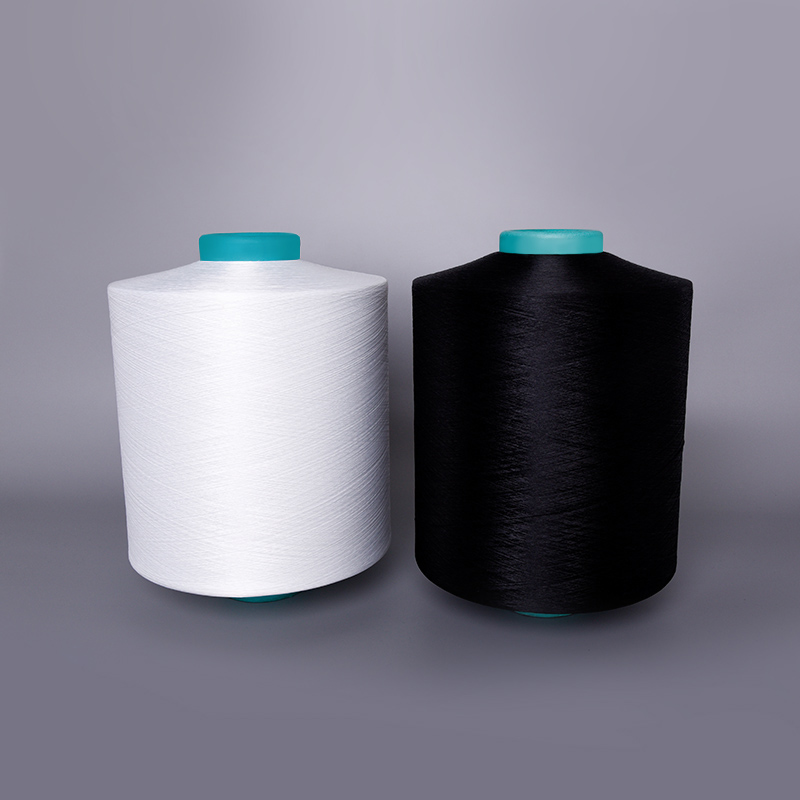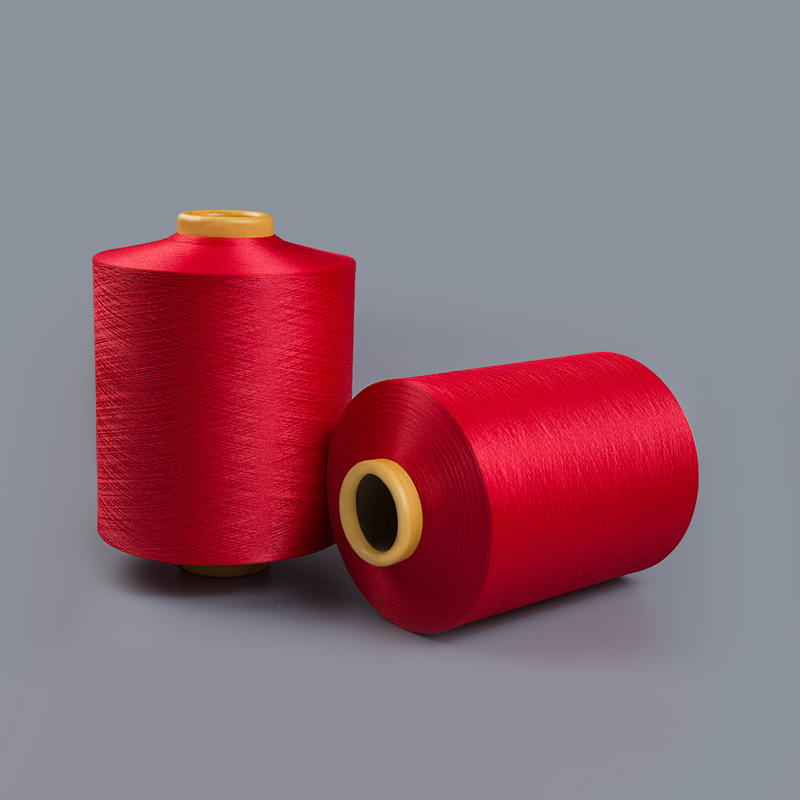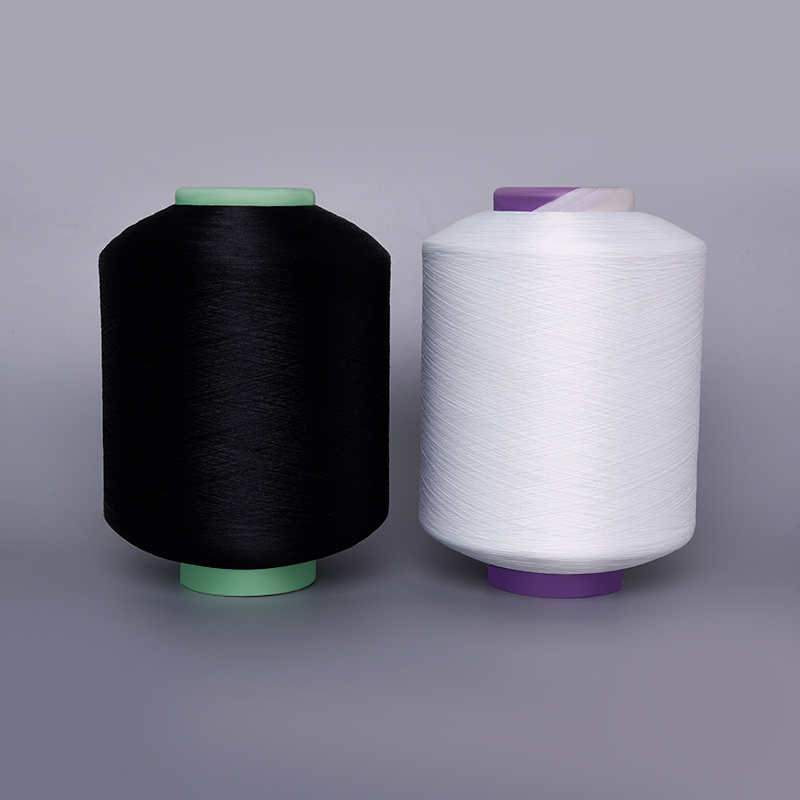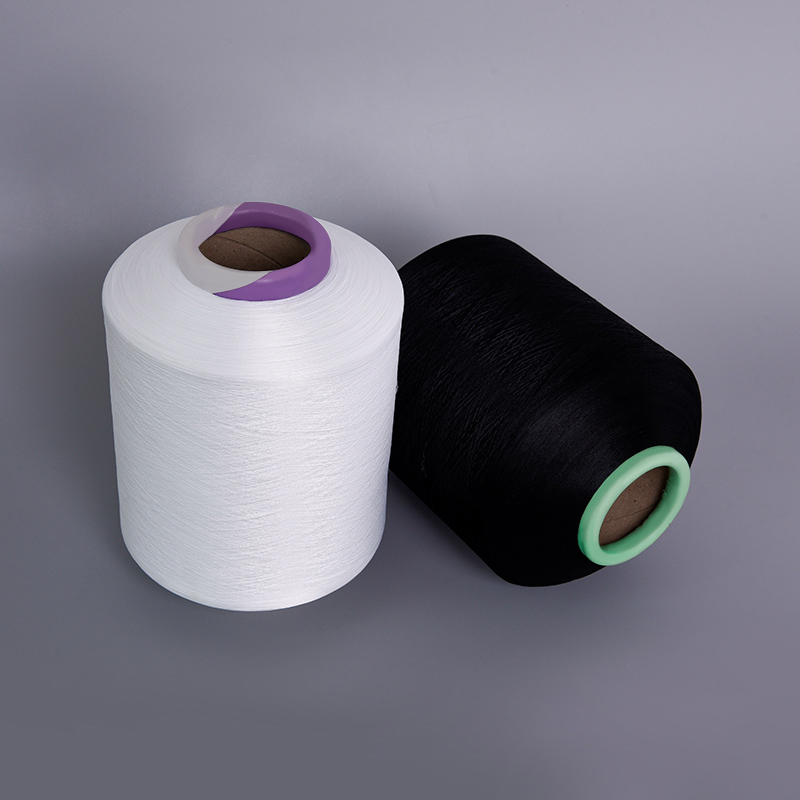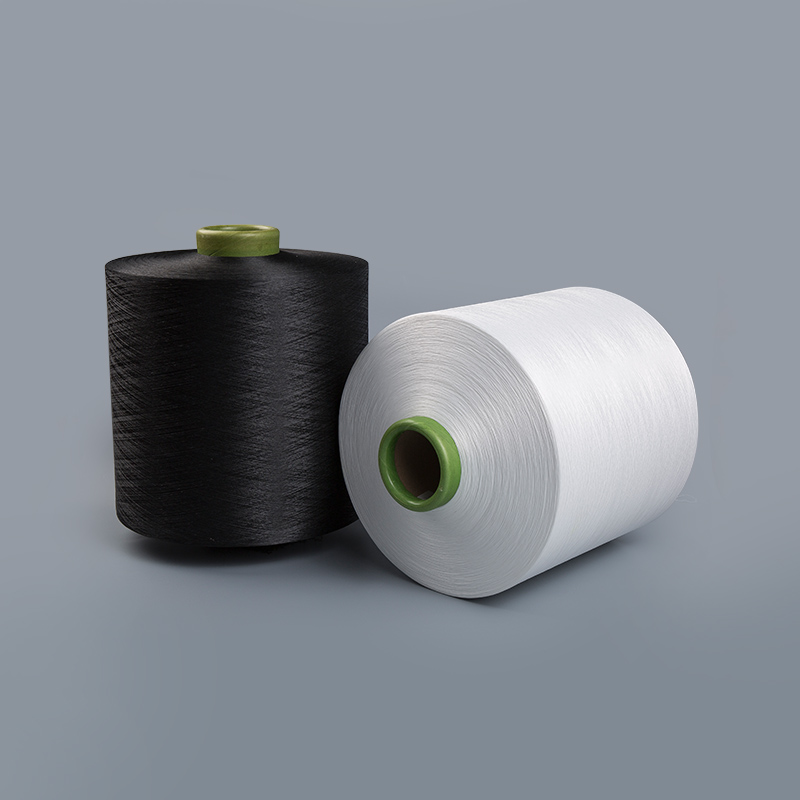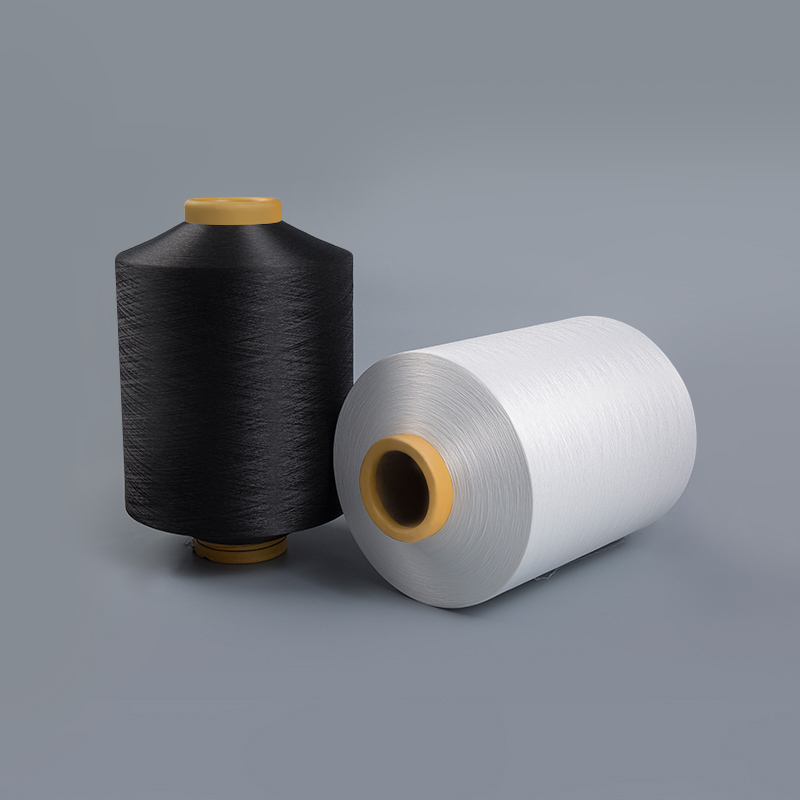Email us now!
Polyester mechanical covered yarn exhibits several key characteristics when exposed to environmental factors such as moisture, temperature, and UV exposure, making it a versatile choice for various applications.
Polyester mechanical covered yarn is naturally hydrophobic, meaning it does not absorb moisture as easily as natural fibers like cotton or wool. This gives it an advantage in humid or wet environments, as it resists water absorption and does not become heavy or lose its strength when exposed to moisture. As a result, the yarn maintains its shape and performance even in damp conditions, making it suitable for outdoor textiles, upholstery, and industrial applications where exposure to moisture is common. However, while polyester itself is moisture-resistant, the covering process (typically involving a synthetic filament wrapped around a core) can sometimes affect the yarn's moisture resistance. If the covering material is less resistant to water or moisture, the overall yarn might absorb some moisture, although not to the extent of natural fibers.
Polyester mechanical covered yarn is known for its ability to withstand a wide range of temperatures. It is stable under high temperatures, typically resisting heat up to 150°C (302°F), which makes it ideal for environments with fluctuating temperatures. Polyester fibers do not degrade easily under heat, and the mechanical covering process can add extra protection by increasing the yarn's ability to resist thermal damage. That said, prolonged exposure to high heat (especially over 200°C or 392°F) can lead to the yarn softening, losing shape, or even melting. In low-temperature conditions, polyester covered yarn maintains its flexibility and tensile strength without becoming brittle. This makes it a good option for outdoor fabrics or materials used in regions with extreme temperature variations.
Polyester is naturally resistant to UV degradation compared to many other synthetic fibers, and this trait is enhanced by the mechanical covering process. The yarn maintains its strength and color under prolonged exposure to sunlight, making it ideal for applications like outdoor fabrics, tents, awnings, and automotive seat covers. The covering material itself can also affect UV resistance; if the mechanical covering is made from a UV-resistant material, the yarn will perform even better in preventing degradation from sun exposure. Over time, however, UV exposure can cause any material to degrade, including polyester, which can lead to a gradual loss of tensile strength and color fading. To mitigate this, UV stabilizers or coatings can be applied to further protect the yarn in long-term outdoor applications.

